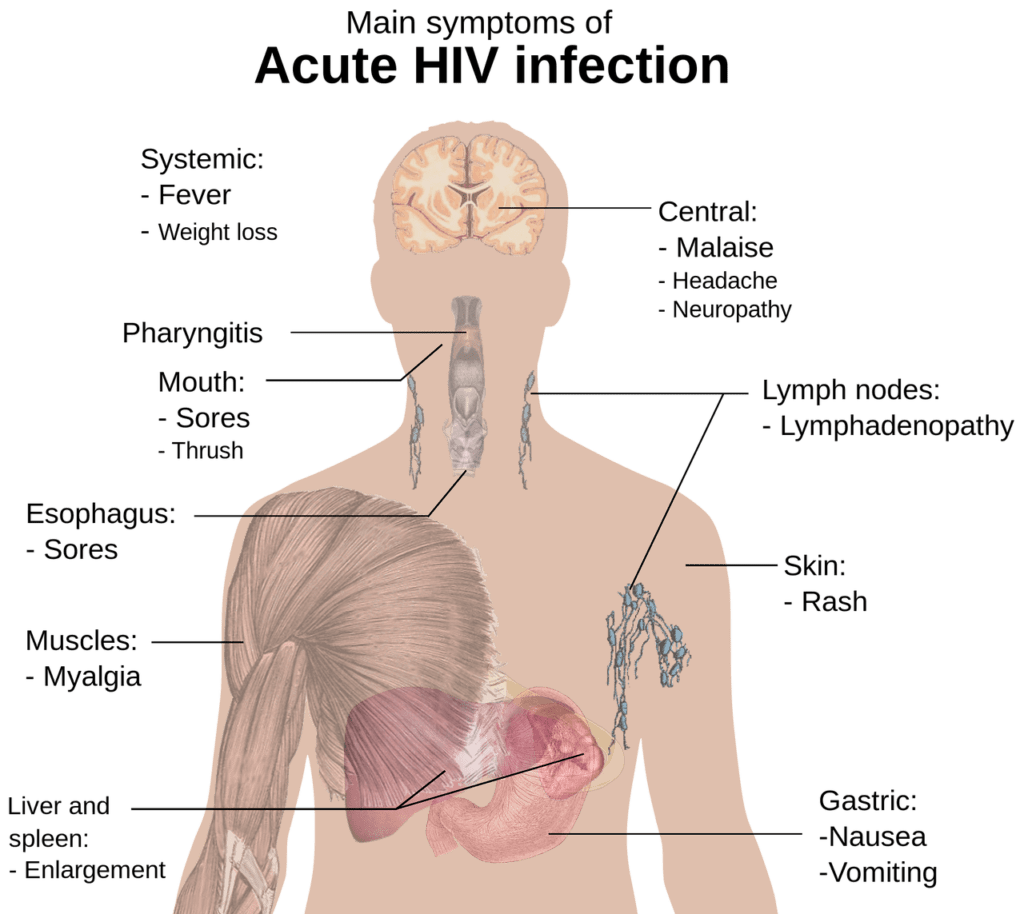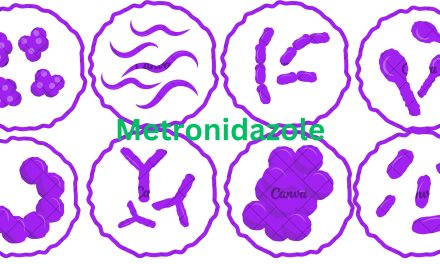INDICATION
Abacavir is a prescription medication used for the treatment of HIV infection.
Doses
ADULT DOSE
- 300 mg orally every 12 hours, OR
- 600 mg orally every day
Tablet
Available as a scored tablet; if unable to reliably swallow tablets, prescribe the oral solution
Weight between 14 kg to 19 kg: 150 mg orally every 12 hours, OR 300 mg every day
Weight between 20 to 24 kg: 150 mg in the morning and 300 mg in the evening, OR 450 mg every day
Above 25 kg: 300 mg orally every 12 hours, OR 600 mg orally every day in combination with other antiretroviral agents
CHILD DOSE
Neonates/infants below 3 months: Safety and efficacy not established
Above 3 months: 8 mg/kg orally every 12 hours or 16 mg/kg/day; not to exceed 600 mg/day
Administration
May be taken with or without food
Contraindications
Prior hypersensitivity reaction to abacavir
Presence of HLA-B*5701 allele
Moderate or severe hepatic impairment
Side effects:
Nausea, tiredness, headache, vomiting, generally, not feeling well, bad dreams or sleep problems, fever and chills, rash, ear, nose, or throat infections, severe upper stomach pain, nausea, vomiting, loss of appetite; swelling around your midsection; dark urine, clay-colored stools, or jaundice (yellowing of the skin or eyes); unusual tiredness; or chest pain or pressure, pain spreading to the jaw or shoulder.
This is not a complete list of side effects and other serious side effects or health problems that may occur as a result of the use of this drug. Call your doctor for medical advice about serious side effects or adverse reactions. You may report side effects or health problems to FDA at 1-800-FDA-1088.

Precaution & Warnings
Lactic acidosis and severe hepatomegaly with steatosis, including fatal cases, reported with nucleoside analogs, including abacavir; a majority of these cases have been in women; female gender and obesity may be risk factors; suspend dosing in those who develop clinical or laboratory findings suggestive of lactic acidosis or pronounced hepatotoxicity, which may include hepatomegaly and steatosis even in the absence of marked transaminase elevations.
Immune reconstitution syndrome reported with combination ART; during the initial treatment phase, patients whose immune systems respond may develop an inflammatory response to indolent or residual opportunistic infections (e g, Mycobacterium avium infection, cytomegalovirus, Pneumocystis jirovecii pneumonia [PCP], or tuberculosis); autoimmune disorders (e g, Graves’ disease, polymyositis, and Guillain-Barré syndrome) have also been reported.
Use has been associated with increased risk of myocardial infarction in observational studies, but not in a meta-analysis of 26 randomized trials; caution with risks for coronary heart disease and minimizing modifiable risk factors, including smoking, hypertension, and hyperlipidemia, prior to use.
Hypersensitivity
Before starting therapy, review medical history for prior exposure to any abacavir containing product.
Increased risk of serious or fatal hypersensitivity reactions; patients with human leukocyte antigen allele, HLA-B*5701 are at a higher risk; do not restart abacavir following hypersensitive reaction; may cause hypotension, multiorgan failure, and/or death (see Contraindications and Black Box Warnings).
If a hypersensitivity reaction is ruled out, patients may restart therapy; rarely, patients who have stopped abacavir for reasons other than symptoms of hypersensitivity have also experienced life-threatening reactions within hours of reinitiating abacavir therapy; reintroduction to drug or any other abacavir-containing product recommended only if medical care can be readily accessed.
A Medication Guide and Warning Card that provides information about recognition of hypersensitivity reactions should be dispensed with each new prescription and refill.
Pregnancy and Lactation
Healthcare providers are encouraged to register patients by calling the Antiretroviral Pregnancy Registry (APR) at 1-800-258-4263
Available data from the APR show no difference in the overall risk of birth defects for abacavir compared with the background rate for birth defects of 2.7% in the Metropolitan Atlanta Congenital Defects Program (MACDP) reference population.
In animal reproduction studies, oral administration of abacavir to pregnant rats during organogenesis resulted in fetal malformations and other embryonic and fetal toxicities at exposures 35 times the human exposure (AUC) at the recommended clinical daily dose; however, no adverse developmental effects were observed following oral administration of abacavir to pregnant rabbits during organogenesis, at exposures approximately 9 times the human exposure (AUC) at the recommended clinical dose.
Lactation
Abacavir is present in human milk; there is no information on the effects of abacavir on breastfed infants or effects of the drug on milk production; because of the potential for (1) HIV-1 transmission (in HIV-negative infants), (2) developing viral resistance (in HIV- positive infants), and (3) serious adverse reactions in a breastfed infant, instruct mothers not to breastfeed if they are receiving abacavir.
Therapeutic class
Antiretroviral Agents, HIV, NNRTIs.
Drug mode of action
Abacavir is a carbocyclic synthetic nucleoside analogue and an antiviral agent. Intracellularly, abacavir is converted by cellular enzymes to the active metabolite carbovir triphosphate. An analogue of deoxyguanosine-5′-triphosphate (dGTP). Carbovir triphosphate inhibits the activity of HIV-1 reverse transcriptase (RT) both by competing with the natural substrate dGTP and by its incorporation into viral DNA. Viral DNA growth is terminated because the incorporated nucleotide lacks a 3′-OH group. Which is needed to form the 5′ to 3′ phosphodiester linkage essential for DNA chain elongation.
Drug Interaction
If your medical doctor is using this medicine to treat your pain, your doctor or pharmacist may already be aware of any possible drug interactions and may be monitoring you for them. Do not start, stop, or change the dosage of any medicine before checking with your doctor, health care provider, or pharmacist first.
Abacavir has severe interactions with the following drug:
elvitegravir/cobicistat/emtricitabine/tenofovir DF
Abacavir has serious interactions with the following drugs:
Cabotegravir, ganciclovir, ribavirin, valganciclovir
Abacavir has moderate interactions with at least 20 other drugs.
Abacavir has minor interactions with the following drug:
Ethanol
This information does not contain all possible interactions or adverse effects.
Therefore, before using this product, tell your doctor or pharmacist about all the products you use. Keep a list of all your medications with you and share this information with your doctor and pharmacist. Check with your health care professional or doctor for additional medical advice, or if you have health questions or concerns.
Learn more about Generic medicine click below link





When I initially commented I clicked the -Notify me when new feedback are added- checkbox and now each time a comment is added I get four emails with the identical comment. Is there any manner you’ll be able to take away me from that service? Thanks!
Unquestionably believe that which you stated. Your favourite justification seemed to be on the web the easiest thing to take into accout of. I say to you, I definitely get annoyed whilst other people consider worries that they plainly don’t recognize about. You controlled to hit the nail upon the highest and also outlined out the whole thing with no need side effect , folks could take a signal. Will probably be again to get more. Thank you
Wonderful blog! I found it while surfing around on Yahoo News. Do you have any suggestions on how to get listed in Yahoo News? I’ve been trying for a while but I never seem to get there! Many thanks
Wow! This blog looks exactly like my old one! It’s on a entirely different topic but
it has pretty much the same layout and design. Excellent choice of colors!
I don’t even know how I ended up here, but I thought this post was great.
I don’t know who you are but definitely you’re going to a famous blogger if you aren’t already 😉 Cheers!
I don’t think the title of your article matches the content lol. Just kidding, mainly because I had some doubts after reading the article.
I don’t think the title of your article matches the content lol. Just kidding, mainly because I had some doubts after reading the article.
Your article helped me a lot, is there any more related content? Thanks!
I appreciate the balance and fairness in The writing, like a perfect partner who always keeps things interesting. Great job!
Hmm is anyone else encountering problems with the images on this blog loading? I’m trying to find out if its a problem on my end or if it’s the blog. Any responses would be greatly appreciated.
Thank you for sharing excellent informations. Your site is so cool. I’m impressed by the details that you’ve on this web site. It reveals how nicely you perceive this subject. Bookmarked this web page, will come back for more articles. You, my friend, ROCK! I found simply the information I already searched everywhere and just couldn’t come across. What a great web-site.
The writing is a masterpiece. You managed to cover every aspect with such finesse.
The piece was both informative and thought-provoking, like a deep conversation that lingers into the night.
You’ve opened my eyes to new perspectives. Thank you for the enlightenment!
The passion you pour into The posts is like a flame, igniting curiosity and warming the soul.
Engaging with The Writing is like savoring a gourmet meal; every bite (or word) is to be enjoyed.
This is one of the most comprehensive articles I’ve read on this topic. Kudos!
Each post is a window into The thoughts, and I must say, the view is stunning.
The depth you bring to The topics is like diving into a deep pool, refreshing and invigorating.
Glad I stumbled upon this article. It’s like finding a $20 bill in a pair of old jeans.
Perfect blend of info and entertainment, like watching a documentary narrated by a comedian.
I am only writing to let you be aware of of the amazing experience my friend’s daughter found browsing your site. She realized several issues, which include what it is like to have a marvelous giving mindset to make certain people without difficulty learn about specified multifaceted subject matter. You really did more than people’s expected results. Thanks for rendering these great, trustworthy, educational and unique guidance on this topic to Kate.
Thoughtful analysis that made me think, which is quite the feat these days.
Shedding light on this subject like you’re the only one with a flashlight. Refreshing to see someone who thinks they have all the answers.
Always excited for The posts, because who else is going to make me feel this inadequately informed?
The dedication to high quality content shows. It’s like you actually care or something.
The passion isn’t just inspiring—it’s downright seductive. Who knew a subject could be this enticing?
A gift for explaining things, making the rest of us look bad.
The insights are as invigorating as a morning run, sparking new energy in my thoughts.
The expertise and hard work shine through, making me admire you more with each word.
The voice shines through The writing like a beacon, guiding us through the darkness of ignorance.
I am really impressed along with your writing talents and also with the structure in your weblog. Is this a paid theme or did you customize it yourself? Anyway keep up the nice high quality writing.
I am really inspired along with your writing skills and also with the layout in your weblog.
Is that this a paid subject matter or did you modify it
your self? Anyway stay up the nice high quality writing, it’s uncommon to peer a nice weblog like this one nowadays.
Your article helped me a lot, is there any more related content? Thanks!